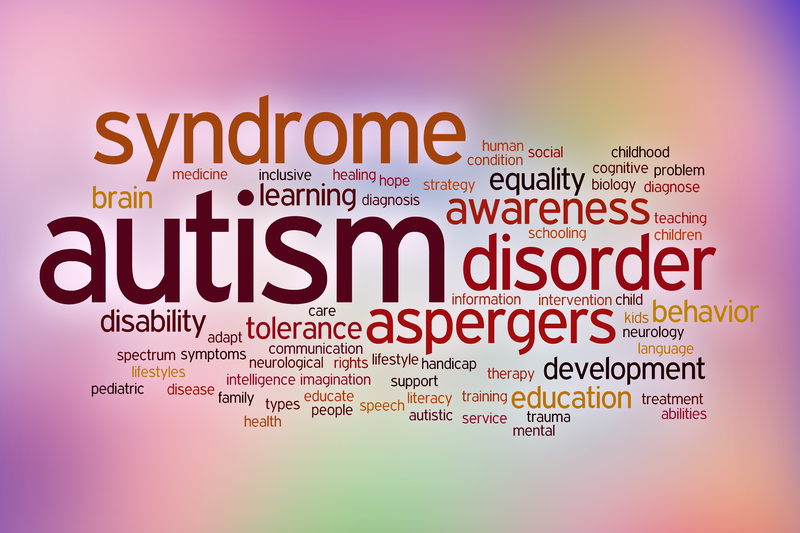
05 Apr Disability Etiquette Matters
Women use own life experiences as basis for book on ‘Disability Etiquette’
March 24, 2011
Ellen Shackelford was napping with her 13-month-old son when she woke abruptly.
She was frazzled, she remembers, recalling that day — July 28, 1983 — but not only because her inconsolable child was screaming and crying as he kept looking up at the ceiling. She had awoken feeling uneasy about a dream she had during the nap but struggled to remember its details.
She was living in Newport News, Va. then. Later that day she and her then- husband, Robin, would pack their 13-month-old son, Raymond, and Ellen’s 7-year-old son, Jason, into their car for a trip to Pennsylvania to visit family where Ellen grew up in Coraopolis and Sewickley.
It was evening and the family had just made it into Somerset when the eight-hour drive began wearing on Robin.Ellen offered to take over driving, but before pulling over to the side of the Pennsylvania Turnpike, the couple noticed a truck following them closely at a high rate of speed.
The dream from earlier flashed before Ellen’s eyes, and just as she unfastened her seat belt, the family’s car was struck violently from behind.
Raymond was killed instantly.
Robin and Jason sustained bruises, bumps and cuts from the crash, but otherwise were okay. Ellen suffered a broken back and had to be cut from the vehicle. As she lay in the wreckage, she remembered thinking, ‘Lord, please don’t take me yet,’ she said. “I always had a premonition that something would happen to me at 23. I was 23.”
Before the accident, Ellen led an active life. She was a young mother taking care of two young children while her husband served in the military. She also had a job and volunteered in the community.
“I did a lot then. Not too many things slowed me down,” she said.
And though the accident left her disabled and in a wheelchair, it still didn’t stop her completely — even as life dealt her blow after blow.
The years brought many changes: She and Robin split, she adopted a little girl, Ashley, took a job as a youth transition coordinator at Insight Enterprises Inc. Peninsula Center for Independent Living, went to college, and held several leadership roles in the community, many of which as an advocate for people with disabilities.
She also founded Connections Access Consulting Services, LLC, with the goal of enhancing awareness of the aging population and those living with disabilities and the importance of their inclusion in social situations.
Then, a comment made five years ago by her grandson would change her life.
He asked, “Grandma, if you don’t tell me, how am I supposed to know?,” to which she replied, “Oh how profound, from the mouths of babes.”
It was then that she realized she wanted to write a book and enlisted the help of longtime friend, Marguerite Edwards, whom she met at the center for independent living.
The friends spent three years researching and an additional seven to eight months writing “Disability Etiquette Matters,” a book stressing the importance of proper interaction with aging people and those with disabilities.
Its contents are filled with stories of people living with disabilities, rules, suggestions and advice on how people with disabilities are the best guide in educating the society of matters affecting their everyday lives, according to its website.
“The Lord thrust me into this position to motivate people,” said Ellen, referring back to the accident. “Thanks to my grandson, I decided what I was supposed to do.”
Marguerite said, for her, writing the book fulfilled a need that she wasn’t getting fulfilled elsewhere.
“I became disabled around 45 — at the prime of my life. I wasn’t ready to sit back,” she said.
Before having a major stroke in 1992, she held a full-time and part-time job, and was very active in the American Legion.
“This is my passion now, to educate and train people (about those with disabilities),” she said.
A follow-up book expanding on “Disability Etiquette Matters” already is in the works. Ellen is also simultaneously working on an autobiography in which she talks openly about the haunting premonition she had since she was 17, the death of her son, Jason, four years ago from unknown causes, and her disability.
“It’s like healing for me. I need some closure, especially because I don’t know what happened to my son yet. (The autobiography) is a motivational book as well,”said Ellen, adding just because things happen to you in life, doesn’t mean you should stop living.
“Life does not stop.”
For more information or to purchase the book, visit: www.disabilityetiquettematters.com.
____________________________________________________________________
Editor’s Note: We are particularly proud that Ellen Shackelford works with The Lett Group to offer courses and keynotes about the importance of Disability Etiquette and what you and your company need to know.
